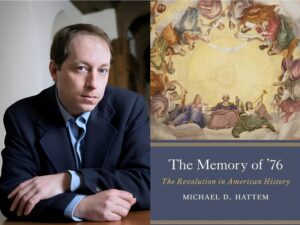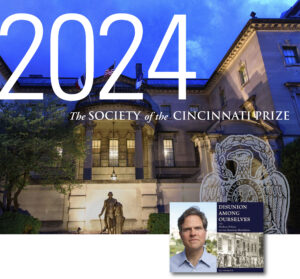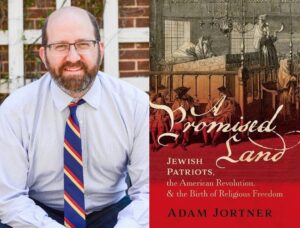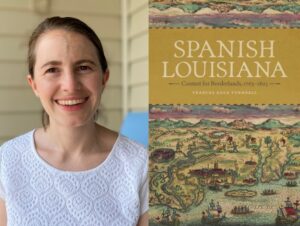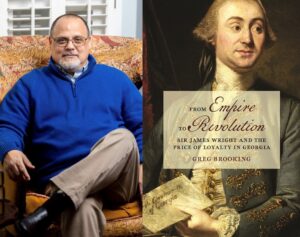Events

September 2024
Author's Talk—Memory of '76: The Revolution in American History
Americans agree that their nation’s origins lie in the Revolution, but they have never agreed on what the Revolution meant. For nearly 250 years, politicians, political parties, social movements, and a diverse array of ordinary Americans have constantly reimagined the Revolution to fit the times and suit their own agendas. Drawing from his new book, historian Michael D. Hattem reveals how conflicts over the meaning and legacy of the Revolution—including the Declaration of Independence and the Constitution—have influenced the most…
Find out more »Special Program—The 2024 Society of the Cincinnati Prize Presentation & Reception
The 2024 Society of the Cincinnati Prize honors Eli Merritt, M.D., M.A., for his book Disunion Among Ourselves: A Political History of the American Revolution (University of Missouri Press, 2023), which explores the politics of the Continental Congress during the American Revolution. Far from a harmonious collaboration, the Continental Congress during the Revolutionary War was so filled with political strife that the delegates feared the war would end in disunion or civil war. But instead of disbanding, these founders managed…
Find out more »October 2024
Author's Talk—A Promised Land: Jewish Patriots, the American Revolution, and the Birth of Religious Freedoms
Jews played a critical role both in winning the American Revolution—fighting for the patriot cause from Bunker Hill to Yorktown—and in defining the republic that was created from it. As the most visible non-Christian religion, Judaism was central to the debate over religious freedom in America at a critical juncture. Except for Philadelphia, the birthplace to the Declaration of Independence and a core of resistance, every city with a synagogue fell to the British during the war. Jewish patriots throughout…
Find out more »Author's Talk—Spanish Louisiana: Contest for Borderlands, 1763-1803
The Spanish era in the Lower Mississippi Valley, a borderland contested by empires and the region’s diverse inhabitants following the Seven Years’ War, was characterized by tremendous transition as the colony emerged from the neglect of the French period and became slowly but increasingly centered on plantation agriculture. The transformations of this critical period grew out of the struggles between Spain and Louisiana’s colonists, enslaved people and Indians over issues related to space and mobility. Many borderland peoples, networks and…
Find out more »November 2024
Author's Talk—From Empire to Revolution: Sir James Wright and the Price of Loyalty in Georgia
James Wright lived a transatlantic life, taking advantage of every imperial opportunity afforded him. He earned numerous important government posts and amassed an incredible fortune. An England-born grandson of Sir Robert Wright, James Wright was raised in Charleston, South Carolina, following his father’s appointment as the chief justice of that colony. Young James served South Carolina in several capacities, public and ecclesiastical, prior to his admittance to London’s famed Gray’s Inn to study law. Most notably, he was appointed South…
Find out more »